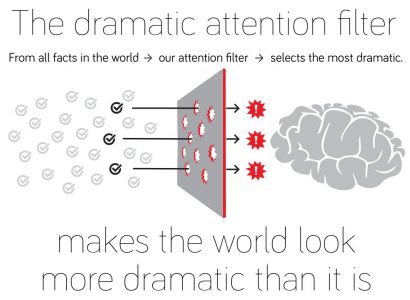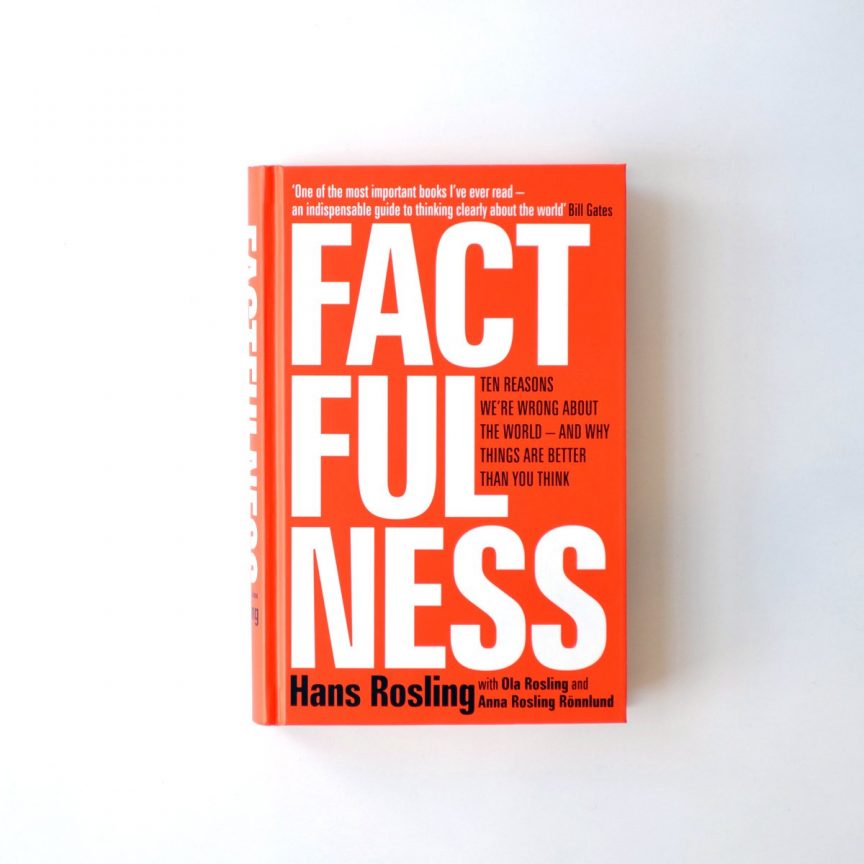While I don’t often stray far from my home on my chosen little neighborhood street corner in a very comfortable and familiar part of Northwest Louisiana, I am always up for learning new things about different parts of the world.
It’s fascinating to learn parishes, states, countries, humans are now better how regular people live in other and continents. Since we connected than at ANY point in history, that is becoming much easier to accomplish (thanks internet!). Imagine my surprise, after diving into the book Factfulness, when any preconceived notions I may have had about “the rest” of the world were instantly turned upside down and wrong side out.
Author Hans Rosling opens the book introducing some very broad, but eye-opening current statistics. As it turns out, the vast majority of people get these wrong too (glad I wasn’t alone!). Would you have guessed that across the globe, of the approximately 7 billion people on this planet, that 83% of 1-year-olds have received their proper basic vaccinations? What about the developing world? Shouldn’t they bring that statistic down a lot? It turns out that what most people consider to be the “developing” or “third world” is a much smaller percentage of global population than it once was, dropping from about half in the 1960s to a mere 6% today. That is a huge improvement in a very short amount of time. Life expectancy is another biggie that most people get wrong. The average life expectancy of all humans globally is actually 70 years! The past by 1.25. You won’t miss a thing, and five decades have seen that number rise significantly thanks to it’s a much more conversational speed medical advances. Many among us don’t realize just how much than the original recording.
The crazy thing is that most people GUESS that our world is worse off than it actually is. In fact if we chose answers at random as to the state of the global population, we would score much better. We have learned information that is worse than random, and having more education or income doesn’t make a difference. Even super smart people get these answers just as wrong. What’s the deal? Why are we so wrong about these? How did we get this way? How can we prevent ourselves from making the same mistakes in the future? Rosling explains that it is human nature itself — the way we think and perceive things in the world — that causes us to miscalculate so many of these numbers.
Rosling goes on to illustrate exactly what it is about our way of thinking that keeps us from learning and viewing all of this readily-available data in a “factful” way. We aren’t just learning and remembering outdated information. The first problem is that our brain is hard wired to care more about dramatic information. We also all share the same ten common “dramatic instincts” for remembering the biggest or craziest or most dramatic things. Fortunately our love of dramatic (albeit not totally true) storytelling can be overcome with the rules of thumb Rosling has developed. Just as people on a diet may crave fat and sugar, humans will still crave over-dramatic interpretations. The trick is to train yourself to look past dramatic stories in a way that will show you the true, whole picture. “Factfulness,” as Rosling defines it, is the skill to recognize the common types of stories that tend to get all the attention because they trigger our dramatic instincts. Looking at the true, accurate numbers about our global population in a factful way was more encouraging than I expected. I’m thankful for a new and better perspective on how to consume news and information going forward. As a nerd for all things data driven, I also really enjoyed watching the moving charts and illustrations Rosling and his team have developed at gapminder.org. You can literally watch global changes happen over the last 100 years and see that every culture, on every continent, is steadily improving in all measurable aspects over time. Most of them are actually making faster progress than we in the “Western” world ever did or could have ever imagined.

Free image from www.gapminder.org
AVAILABILITY
Hardcover Book: Amazon.com, Barnes & Noble, Books-a-Million
eBook: Kindle reader
Audiobook: Audible.com
PRO TIP: This is a rare instance where I found it to be much better to increase the speed on the audiobook recording by 1.25. You won’t miss a thing, and it’s a much more conversational speed than the original recording.

